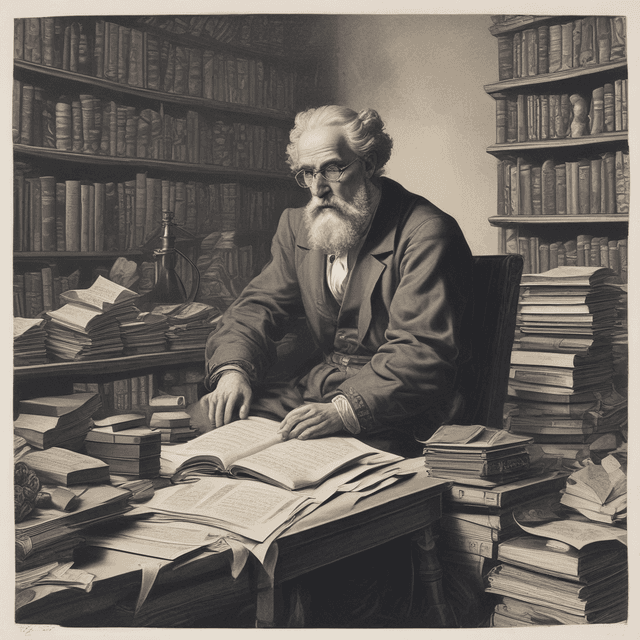
| 19th and 20th century | Rise of existentialism • Rise of phenomenology |
| Contemporary philosophy | Pluralism • Rejection of grand, all-encompassing systems |
| Early modern philosophy | Privileged empiricism • Naturalism over religious frameworks |
| Philosophical traditions | Materialist • Skeptical • Less emphasis on metaphysics and theology |
| Medieval European influences | Reduced Islamic philosophy influence, more distinctly Western tradition |
Philosophy in this alternate timeline has taken a markedly different trajectory than in our own, reflecting divergent historical, cultural and intellectual developments. While many of the same key figures and schools of thought have emerged, their influence and the overall direction of philosophical inquiry has been substantially altered.
Classical Greek philosophy arose in the 6th-4th centuries BCE, but in this timeline its development followed a more materialist and skeptical path. Thinkers like Thales, Democritus, and Pyrrho were more prominent, emphasizing naturalistic explanations of the world and the limits of human knowledge, in contrast to the idealist metaphysics and theology of Platonism and Aristotle in our own history.
The atomism of Democritus and the radical skepticism of Pyrrho and the Pyrrhonists had a greater impact, shaping later Hellenistic schools like Epicureanism and Skepticism. Materialism, empiricism, and agnosticism regarding the metaphysical became the dominant tendencies in ancient Greek philosophy, with less emphasis on the quest for absolute truth and the nature of the divine.
The influence of Islamic philosophy on medieval European thought was considerably less in this alternate timeline. While figures like Avicenna and Averroes still made important contributions, they did not achieve the same level of prominence or impact on thinkers like Thomas Aquinas, Duns Scotus, and William of Ockham.
As a result, medieval philosophy in this world developed a more distinctly Western character, with a greater focus on reconciling classical Greek ideas with emerging Christian theology. Debates around the nature of universals, the limits of human reason, and the relationship between faith and knowledge took on a somewhat different complexion.
The early modern period, spanning the 16th-18th centuries, saw the rise of philosophical systems more explicitly centered on empiricism, naturalism, and secularism. Thinkers like Francis Bacon, Thomas Hobbes, John Locke, and David Hume were more dominant figures, emphasizing the role of sensory experience, natural science, and skepticism towards traditional metaphysics and theology.
While philosophers like René Descartes and [[Gottfried Leibniz] still made important contributions, the general trajectory of early modern thought placed less emphasis on reconciling philosophy with religious doctrine. The Enlightenment ideals of reason, progress, and the autonomy of the individual took on a more robustly secular character.
In the 19th and 20th centuries, the development of philosophy in this timeline displays some striking differences. The existentialist tradition, centered on figures like Søren Kierkegaard, Friedrich Nietzsche, Martin Heidegger, and Jean-Paul Sartre, emerged earlier and had a more profound cultural impact.
These thinkers, with their focus on the individual, the problem of meaning, and the critique of traditional metaphysics, pushed philosophy in a more anti-systematic and anti-rationalist direction. Phenomenology, as developed by Edmund Husserl and Maurice Merleau-Ponty, also played a more central role in shaping 20th century philosophical discourse.
Analytic philosophy, which became the dominant Anglo-American philosophical tradition in our world, never fully achieved the same level of hegemony. While thinkers like Bertrand Russell, Ludwig Wittgenstein, and W.V. Quine made important contributions, the landscape remained more pluralistic, with existentialist, phenomenological, and neo-Marxist schools retaining greater influence.
The contemporary philosophical landscape in this alternate timeline is marked by a greater degree of pluralism and skepticism towards grand, all-encompassing systems. While there are still robust debates between various schools and orientations, the general tenor is one of a rejection of the possibility of a single, unifying philosophical framework.
Thinkers across different traditions - analytic, continental, pragmatist, and others - have placed increasing emphasis on the contextual, perspectival, and provisional nature of philosophical knowledge. Interdisciplinary approaches, drawing on developments in cognitive science, linguistics, social theory, and beyond, have further contributed to the sense that philosophy must be attuned to the complexities and contingencies of the human condition, rather than seeking eternal truths.
In this world, philosophy continues to be a vibrant, diverse, and ever-evolving field of inquiry, reflecting the rich tapestry of human thought and experience.